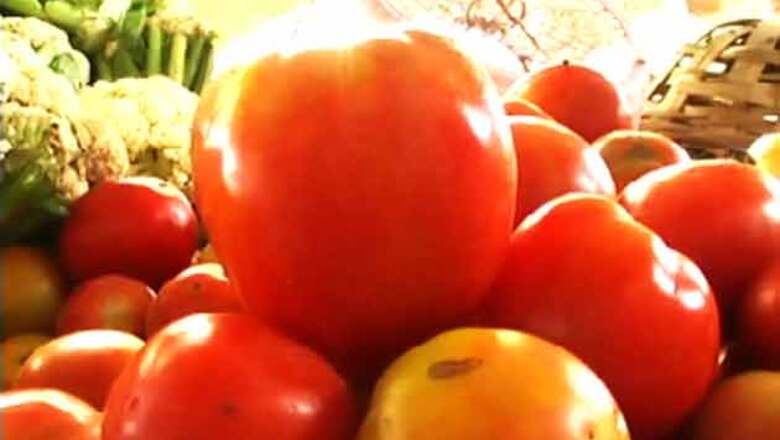
views
New Delhi: Food inflation surged to a 10-week high of 14.44 per cent for the week ended December 18 as prices of vegetables, particularly onions, fruits, cereals and protein-based products, continued to escalate.
Food inflation stood at 12.13 per cent in the previous week. This is the fifth consecutive week when the price of food items has increased.
However, food inflation is still far below the level of 21.19 per cent seen during the same week last year.
On an annual basis, onions became costlier by 4.36 per cent, whereas on a week-on-week basis, the increase was 3.49 per cent, government data released here shows.
The rate of price rise of vegetables was 5.78 per cent on an annual basis, while on a weekly basis, it was 4.58 per cent.
Fruits became 19.01 per cent more expensive, while milk grew 24.64 per cent costlier on a year-on-year basis during the week under review.
Similarly, eggs, meat and fish prices rose by 31.21 per cent on an annual basis.
Overall, the price of cereal went up by 7.77 per cent year-on-year, while pulses became 13.82 per cent dearer.
What is more, the price of rice rose by 7.36 per cent year-on-year and wheat by 8.32 per cent.
On a weekly basis, however, the price of most items -- barring vegetables -- appreciated in a narrow range.
A good monsoon and prospects of a bountiful kharif harvest had prompted the government to exude confidence about a decline in food inflation.
However, after moderating for a few weeks in November, resurgent inflationary pressure has made all the government's calculations go haywire.
Unseasonal rainfall in Maharashtra, which resulted in damage to onion crops, saw prices of the staple vegetable soar by over Rs 80 per kg in mid-December. This prompted the government to ban exports of the product and also remove import duty to increase availability in the domestic market.
High food inflation could prompt the Reserve Bank to hike key short-term rates at its policy review next month.
RBI Deputy Governor Subir Gokarn had last week hinted that more tightening monetary measures were likely to be taken by the apex bank at its next policy review, as headline inflation is not easing as fast as the apex bank would like and the upside risks still remain high.
"Inflation is not easing as we would like it to be. Upside risks to inflation are still high," he had said.
Overall inflation for November was at 7.48 per cent, down from 8.58 per cent in the previous month.
Experts have said that the rise in food inflation is likely to have repercussions on the final WPI inflation figures for December.


















Comments
0 comment